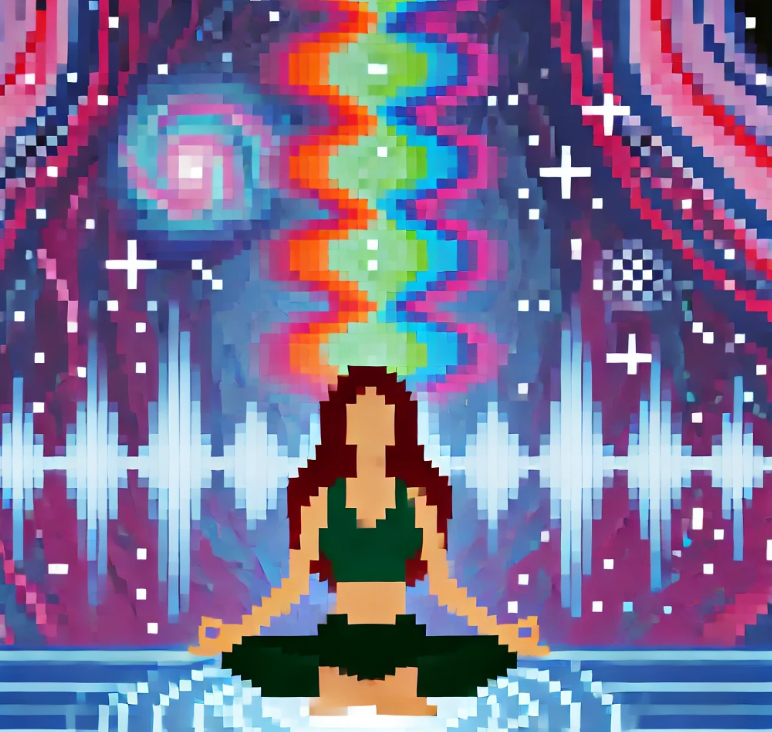
Mystical Moments in Psychedelic Therapy
Imagine feeling an overwhelming sense of unity with the universe, where the boundaries of your ego dissolve, and you experience a profound connection to everything around you. This mystical experience is not just a fanciful idea but a potential game-changer in the world of mental health treatment. Recent research suggests that these profound moments, often induced by psychedelics like psilocybin, ayahuasca, and ketamine, might hold the key to treating various psychological disorders.
What is a Mystical Experience?
A mystical experience involves a sense of oceanic boundlessness, ego dissolution, and a feeling of universal interconnectedness. In simpler terms, it’s when a person feels deeply connected to the universe and everything in it, often accompanied by a loss of personal identity. This state of being can bring about intense emotions such as bliss, insightfulness, and a deep sense of unity.
The Science Behind Psychedelic Therapy
Psychedelic therapy involves using substances like psilocybin (found in magic mushrooms), ayahuasca, and ketamine to treat mental health issues. These substances can induce mystical experiences, which researchers believe are closely linked to symptom reduction and improved quality of life.
In a systematic review of 12 studies, researchers explored the association between mystical experiences and therapeutic outcomes in psychedelic therapy. The findings were promising: ten of the twelve studies found a significant link between the intensity of the mystical experience and the reduction of symptoms in conditions like depression, anxiety, and substance use disorders.
Breaking Down the Research
1. Cancer-Related Distress
Two studies focused on patients with cancer-related psychiatric distress. They found that the intensity of the mystical experience significantly correlated with reduced symptoms of anxiety and depression. Patients reported feeling more at peace, with a greater sense of meaning and life satisfaction following their psychedelic sessions.
2. Depression
For those battling treatment-resistant depression, the findings were particularly compelling. Studies showed that psilocybin-induced mystical experiences predicted a significant decrease in depressive symptoms. Patients who experienced higher levels of oceanic boundlessness (a key feature of the mystical experience) reported better outcomes, including reduced anxiety and improved mood.
3. Substance Use Disorders
Psychedelic therapy also showed promise in treating substance use disorders. In studies involving alcohol and tobacco addiction, participants who had profound mystical experiences reported a greater reduction in their cravings and consumption. This suggests that the transformative nature of the mystical experience could be a powerful tool in breaking the cycle of addiction.
Why Mystical Experiences Matter
But why do these mystical experiences matter so much? The answer lies in their ability to foster deep, meaningful insights and a sense of psychological flexibility. When individuals undergo a mystical experience, they often report a newfound perspective on their lives, their problems, and their place in the world. This shift in perspective can be incredibly therapeutic, helping them to break free from rigid patterns of thinking and behavior.
Challenges and Limitations
While the research is promising, it’s not without its challenges. Many of the studies reviewed had small sample sizes and lacked diversity in terms of gender, ethnicity, and socioeconomic status. Additionally, six of the twelve studies were open-label, meaning participants knew they were receiving the psychedelic substance, which could introduce bias.
Moreover, the field of psychedelic research is still relatively new, and there’s much we don’t understand about the mystical experience. For example, what factors predict the intensity of the experience? How can we maximize its therapeutic benefits while minimizing potential anxiety or negative effects?
The Future of Psychedelic Therapy
Future research needs to address these limitations by including larger, more diverse sample sizes and using randomized, double-blind designs to reduce bias. Additionally, exploring the nature of mystical experiences in greater depth, including the predictors of their intensity, could help optimize psychedelic therapy.
Imagine a world where mental health treatment isn’t just about managing symptoms but fostering profound, transformative experiences that lead to lasting change. This is the potential of psychedelic therapy—a field that combines the mystical with the medical, offering hope for those who haven’t found relief through traditional treatments.
Your Thoughts?
What do you think about the potential of psychedelic therapy? Have you or someone you know experienced a mystical moment that changed your perspective on life? Share your thoughts in the comments below!
Conclusion
The review of studies on psychedelic therapy highlights the potential of mystical experiences to significantly impact mental health treatment. By fostering profound insights and psychological flexibility, these experiences can lead to meaningful improvements in symptoms and quality of life. While the field is still evolving, the promise it holds for treating conditions like depression, anxiety, and substance use disorders is undeniable.
Unlock Science Secrets:
Discover revolutionary research and innovative discoveries with ‘This Week in Science’! Designed for educators and science lovers, our free weekly newsletter offers insights that can transform your approach to science. Sign up now and deepen your understanding and passion for science. If you liked this blog, please share it! Your referrals help This Week in Science reach new readers.



